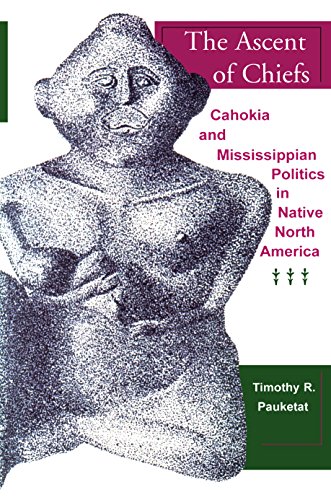
By Thomas M. Kane
This quantity explores the explanations why American leaders from the 1700s onwards often undertake regulations of unilateralism. Thomas M. Kane provides clean factors for America’s invasion of Iraq and defiance of overseas agreements, which move a lot deeper than traditional reviews of specific presidents to envision the true importance of the September eleven assaults. because the basically and unheard of sole superpower, the U.S. faces various new and intricate difficulties. Kane attracts at the taking into account Machiavelli to light up and examine the major demanding situations for either the united states and the worldwide neighborhood. This exact e-book: connects modern US coverage to styles that extend again to America’s founding explores political dynamics affecting all republics contributes to theoretical debates concerning the benevolence, or another way, of yankee democracy highlights the main concerns that americans and non-Americans alike needs to deal with now and sooner or later. Theoretical Roots people overseas coverage might be of significant curiosity to all scholars people overseas coverage, approach and heritage and of diplomacy, politics and strategic reviews quite often.
Read Online or Download Theoretical Roots of US Foreign Policy: Machiavelli and American Unilateralism (Contemporary Security Studies) PDF
Best science & medicine books
Thomas M. Kane's Theoretical Roots of US Foreign Policy: Machiavelli and PDF
This quantity explores the explanations why American leaders from the 1700s onwards usually undertake regulations of unilateralism. Thomas M. Kane provides clean motives for America’s invasion of Iraq and defiance of foreign agreements, which move a lot deeper than traditional reviews of specific presidents to envision the true importance of the September eleven assaults.
Timothy R. Pauketat's The Ascent of Chiefs: Cahokia and Mississippian Politics in PDF
This bold booklet presents a theoretical rationalization of ways prehistoric Cahokia grew to become a stratified society, and eventually the head of local American cultural fulfillment north of Mexico. contemplating Cahokia when it comes to classification fight, Pauketat claims that the political consolidation during this area of the Mississippi Valley occurred relatively by surprise, round A.
Read e-book online Unconscious Crime: Mental Absence and Criminal PDF
A sleepwalking, homicidal nursemaid; a "morally vacant" juvenile poisoner; a guy pushed to arson via a "lesion of the will"; an articulate and poised guy on trial for attack who, whereas accomplishing his personal security, undergoes a profound character switch and turns into a wild and delusional "alter. " those individuals are no longer characters from a secret novelist's shiny mind's eye, yet relatively defendants who have been attempted on the previous Bailey, London's critical legal courtroom, within the mid-nineteenth century.
New PDF release: Observations and Predictions of Eclipse Times by Early
Eclipses have lengthy been noticeable as very important celestial phenomena, even if as omens affecting the way forward for kingdoms, or as necessary astronomical occasions to assist in deriving crucial parameters for theories of the movement of the moon and sunlight. this is often the 1st ebook to gather jointly all shortly recognized documents of timed eclipse observations and predictions from antiquity to the time of the discovery of the telescope.
- The Moundville Expeditions of Clarence Bloomfield Moore
- Nation, Society and Culture in North Africa (Cass Series--History and Society in the Islamic World)
- The Modern Philosophical Revolution: The Luminosity of Existence
- A history of intelligence and 'intellectual disability' : the shaping of psychology in early modern Europe
- Peace Operations After September 11 2001 (The Cass Series on Peacekeeping, 14)
- Old World and New: Early Medical Care, 1700-1840 (The History of Medicine)
Additional resources for Theoretical Roots of US Foreign Policy: Machiavelli and American Unilateralism (Contemporary Security Studies)
Example text
The authors of the Constitution attempted to subject foreign policy makers to the same system of checks and balances as other organs of government. Although they gave the president the power to repel attacks, they stipulated that only Congress could declare war, and, although they gave the president the power to negotiate treaties, they gave the Senate the powers of advice and consent. The Constitution’s attempt to divide foreign policy powers among multiple branches of government has proved problematic over the years.
57 Later, Samuel Adams expressed grander ambitions. ’ 59 35 THEORETICAL ROOTS OF US FOREIGN POLICY Thomas Jefferson agreed with many of these goals in principle, but believed that they were best accomplished through patience. ‘Our confederacy must be viewed as the nest from which all America, North and South is to be peopled. We should take care not to think it for the interest of that great continent to press too soon on the Spaniards. 62 Given the importance the early American republic placed on avoiding excessive commitment to foreign countries, it is not surprising that its statesmen placed great importance on self-reliance.
This, the author hopes, presents the most accurate picture of US policies. Such accuracy allows one to apply theoretical ideas more flexibly and intelligently. 25 THEORETICAL ROOTS OF US FOREIGN POLICY Independence: why America needed it and how America secured it The fact that America began its national history with a Declaration of Independence draws Americans into Machiavelli’s political universe. 2 Moreover, by putting the responsibility for their political destiny in the hands of a republican government, the revolutionaries took up one of the Florentine’s other crucial themes.


